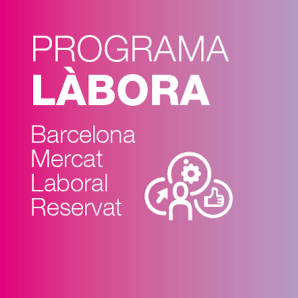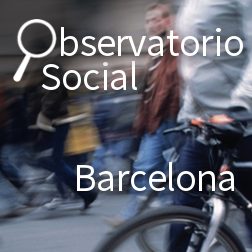Reduction of 35% in the number of women sleeping rough in a year
11/05/2021 - 12:42
- CUESB, Centre d’urgències i emergències socials de Barcelona, serveis socials, emergències socials
- CUESB, Centre d’urgències i emergències socials de Barcelona, serveis socials, emergències socials
- CRI La Violeta, La Violeta, Centre Residencial d’Inclusió, sensellarisme femení, dones
- CRI La Llavor, La Llavor, Centre Residencial d’Inclusió, sensellarisme femení, dones
- CRI La Llavor, La Llavor, Centre Residencial d’Inclusió, sensellarisme femení, dones
A year after the approval of the government measure to prevent homelessness among women, figures show that the series of measures in place have helped cut the number of women sleeping rough and improve the care offered to them. Patterns in the vulnerability of homeless women differ to those for men, meaning a specific approach is needed.
The monthly numbers for homeless women over the last year show a drop of 35%, falling from 134 women detected in January 2020 to the 87 counted in March 2021. This is the first time since 2008, when systematic counting began, that the percentage of women sleeping rough has dropped below 10% of the total, a percentage which in the previous years varied between 11% and 15%.
Government measure to prevent homelessness among women
Among other things, the drop is the result of the steps takes since the approval of the government measure to prevent homelessness among women and introduce the gender perspective in support for the homeless 2020-2023. The measure is being implemented through the thirty organisations making up the Support Network for the Homeless (XAPSLL) and municipal services. Action has centred around three main areas:
- Improving support in cases of male violence towards women, as many homeless women have suffered this type of violence.
- Activating social, labour and accommodation paths to promote labour insertion among women and their referral to accommodation resources.
- Responding to female hygiene needs, privacy and intimacy, with shelters designed with a feminist perspective.
A notable move among these facilities came during the pandemic, with a specific operation for women at the Barcelona Social Emergency and Urgent Care Centre (CUESB), which was later transferred to a hotel establishment in the city until September 2020, attending to 192 women in all.
Three other facilities are women-only shelters:
- Sarrià Primary Shelter (CPA): with 54 places, located at C/ Císter, 20. The facility opens every night, from 8 pm to 9 am.
- La Llavor Residential and Inclusion Centre (CRI): open since October 2020, this centre is managed by Sant Joan de Déu social services and provides 40 places, plus labour and psychological support services.
- La Violeta Residential and Inclusion Centre (CRI): opened in April, this facility provides 26 places for women and is run by Assís, with funding shared by the City Council and the Government of Catalonia.
The lack of visibility of homelessness among women has meant that facilities designed for homeless people in the past took a men’s perspective, without taking into account women’s specific needs in matters as important as security, intimacy, hygiene or privacy. The experience has shown that women have to bear more cases of infra-housing, abuse and violence than men before becoming homeless, and when they do reach this situation they are in a physically and emotional worse condition than men.
















